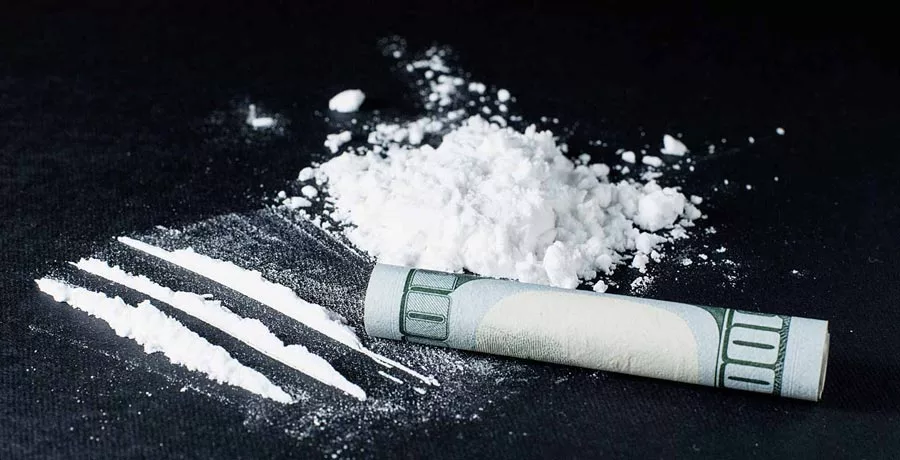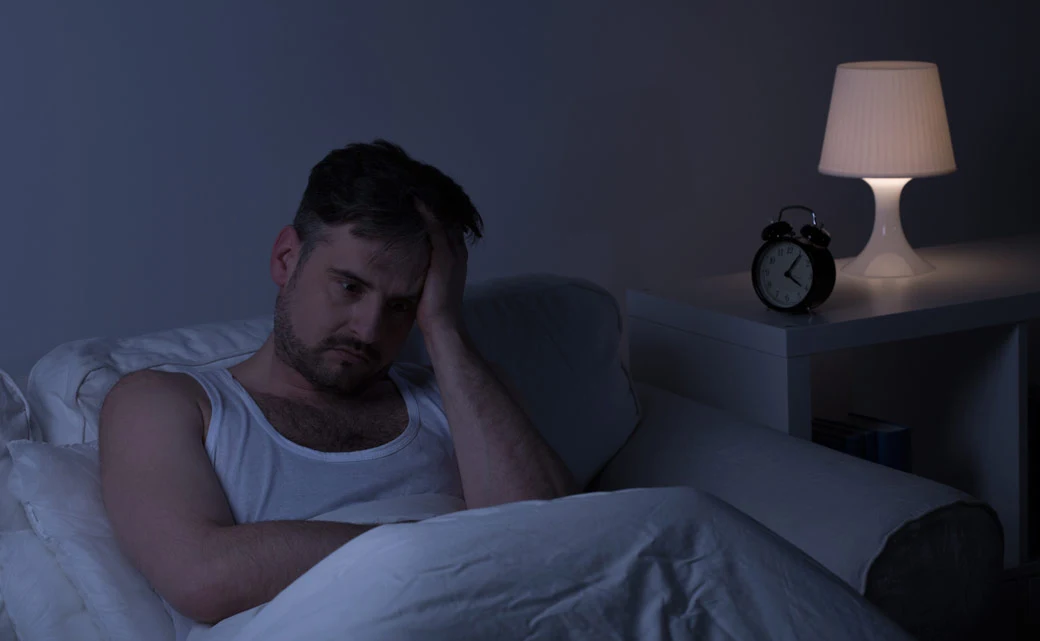Ensuring Your Safety During Detox
Drug and alcohol detox can be one of the more difficult aspects of early recovery when attempted alone. Certain substances such as central nervous system depressants and alcohol can even cause life-threatening withdrawal symptoms if medical help isn’t available. This is why it’s critical to have ample support during your recovery from alcohol and drug withdrawal symptoms.
At Exclusive Hawaii Rehab, our number one priority is your safety and wellbeing. We provide a safe and comfortable detox from drugs and alcohol with compassionate care and an integrated naturopathic and medical approach. We offer the highest level of alcohol and drug detox safety through our thorough medical evaluation upon arrival.
We assess each patient’s level of detox needs based on the ASAM standards. If your detox should be severe or level 4 or higher according to the ASAM guide, then you will be moved to a partnered hospital where you’ll receive round-the-clock care for a few days until the peak of your withdrawal symptoms is over.
Exclusive Hawaii Rehab makes our client’s wellbeing, safety, and comfort during detox the highest priority. Moreover, we make the most of your time with us by starting your addiction and behavioral health treatment from the first day because we are able to help you to feel comfortable through the detoxification process so that it doesn’t impede your recovery and treatment.
What is Medical Detox?

Our medical detox program for alcohol and drug dependence is a safe way to receive treatment for withdrawal symptoms through a combined approach that uses powerful antioxidants to facilitate the body’s natural detoxification pathways and FDA-approved medication when necessary. We don’t want anyone to suffer and can provide medications such as Librium or lorazepam if needed. Clients’ symptoms and comfort levels are closely monitored during the entire detox process with 24/7 medical supervision available at our partner hospital should the need arise.
A common concern about using prescription medication to treat withdrawal symptoms is that one substance is being replaced by another; however, we will quickly taper a person off the medications they needed during detox so that they can wean off all pharmaceuticals and return to a natural functional state.
At Exclusive Hawaii rehab, our medical detox program for drug and alcohol addiction is the safest and most comfortable way to overcome a physical reliance on alcohol or drugs.
Experience True Healing
Our deeply-caring staff and the surrounding natural beauty offer an unparalleled healing experience.
Drugs That Require Medical Detox
To better understand why medical detox is required, it’s important to understand why withdrawal symptoms occur. Medical detox is the best way to treat certain substance dependences because of how these substances affect your body function. Substances that are physically addictive such as methamphetamine, prescription drugs, heroin, alcohol, or other addictive substances cause your body to become dependent on them through repeated use.
The body undergoes fundamental changes that may affect crucial systems, hormones, and neurotransmitters. For example, the chemicals GABA and glutamate may be impacted by alcohol or depressant drug addiction. Most drugs and alcohol also affect your body’s ability to produce functional levels of neurotransmitters, your body’s natural feel-good chemicals, such as dopamine and serotonin.
The body adjusts to the constant presence of drugs or alcohol leaving it unbalanced. Once substance use ceases, your body is still in an altered state. The period of adjustment back to homeostasis, and the discomfort felt during this time, is what’s known as withdrawal. The process of detox usually takes anywhere from a few days to a week and is essentially your body returning to a normal balance again. To reduce the shock and dangers involved with some detoxes, vitamins, minerals, and herbal supplements, as well as prescription medications, can make the transition much easier.

Substances that may require a medical detox if symptoms are expected to be severe include:
- Heroin
- Methamphetamine
- Depressant prescription drugs or benzodiazepines (Xanax, Ativan, Valium, Ambien, Lunesta, etc.)
- Opioid prescription drugs or morphine derivates (Oxycontin, Percocet, Duramorph, Tylox, Vicodin, Methadose, Opana, etc.)
- Stimulant prescription drugs (Ritalin, Concerta, Adderall, Dexedrine, etc.)
- Alcohol
Our Integrative Medicine Approach to Detox
What truly sets Exclusive Hawaii Rehab apart is our integrative medicine approach to detox. Our approach combines the best of modern psychology and treatment models for detox, based on the best practices set out by the American Society of Addiction Medicine, combined with traditional models that incorporate ancient Eastern medicines and naturopathic medicine.
Our medical director, Dr. Bryce Healy, is a naturopathic doctor that combines his expertise in creating a more comprehensive and natural way for the body to recover from withdrawal symptoms during detox. For example, we will provide you with vitamins, minerals, and herbs that support liver function to help your body speed up its natural ability to heal during detox.
Our integrative medicine approach to detox combines all of the best-known methods of treating and managing withdrawal symptoms during alcohol or drug detox with a focus on providing your body with the nutrients and minerals that it needs to enhance your recovery. Our goal is to help you not need any pharmaceuticals at all in a relatively short space of time because your body’s natural healing ability is in full force.
Drug and alcohol detox through our medical detox program at Exclusive Hawaii Rehab will give you the safest and most comfortable way to heal your body and overcome your withdrawal symptoms. With therapy and treatment for the causes of your addiction starting on the first day alongside your detox, you will begin your recovery from addiction from the moment you start your treatment plan at Exclusive Hawaii Rehab.
Experience True Healing
Our deeply-caring staff and the surrounding natural beauty offer an unparalleled healing experience.
What Happens During Medically Supervised Detox?
Making the decision to stop using drugs or alcohol is the first step in recovering from a substance abuse disorder. In order for counseling and therapy to be effective, treatment needs to start with a complete withdrawal from the substance you use. This is can be difficult unless you participate in a medical detox program.
Medically assisted detox has been proven to be more successful than trying to detox by going cold turkey on your own. In fact, there are several benefits to seeking professional help right at the outset.
On this page, we’ll discuss exactly what medically supervised detox is and how it can help individuals who want to overcome drug and alcohol addiction.
What Is a Hawaii Medically Supervised Detox?
There are many phases involved in treatment. However, the stages of addiction treatment begin with a Hawaii detox program. Detox is the process by which the body clears itself of toxic substances such as drugs and alcohol. It can be uncomfortable, painful, and even life-threatening. However, a medical detox program provides a safe environment in which patients are supervised by licensed medical professionals.
Many individuals who successfully complete treatment start with entering a facility that offers medically supervised detox. Detox needs to come first because you can only analyze your behavior and learn new skills when your body is free of the addictive substance you used.
That’s why many inpatient and outpatient rehab programs offer detox as the first step of their treatment program. Individuals receive 24/7 care before they move on to counseling and other forms of therapy.
The Benefits of a Medical Detox Setting In Hawaii

Hawaii is the ideal setting in which to start the healing process. It offers a variety of natural attractions, stunning views, and the peace and quiet needed for rejuvenation. Exclusive Hawaii Rehab is located on the Big Island and we offer complete privacy and unobstructed views of the Pacific Ocean. It is here that many people experience the benefits of medically supervised detox.
Medical Detox Can Save Lives
Substance abuse has several negative effects on the brain and body. However, medical professionals play a significant role in detecting and treating medical emergencies relating to individuals’ drug or alcohol use. That’s one of the reasons why medical detox is so helpful.
Individuals who detox without medical care can suffer deadly consequences. Some people experience tremors during withdrawal while others experience even more severe symptoms such as delirium and seizures. Life-threatening detox is most likely to occur in people who are addicted to alcohol, benzodiazepines, and barbiturates. However, whenever individuals have co-occurring medical and physical disorders, there’s the risk of dangerous complications.
Withdrawal symptoms will vary from one person to another depending on numerous factors such as:
- How long the person has been using the substance
- How the individuals took the substance
- The amount they usually took
- How frequently they used the substance
- The person’s medical history and mental health
- Whether the person mixed the substance with alcohol or other drugs
- The person’s gender
- The person’s body weight
People who participate in medically-assisted detox are more likely to complete the process than those who attempt to do so at home. Individuals who fail to complete detox are at a much higher risk of relapse. Also, the agony of withdrawal along with a sense of guilt or failure can prevent some people from trying to get clean again. People who never complete detox are at high risk of causing permanent damage to the body and suffering a fatal overdose.
Medical Detox May Reveal Co-Occurring Disorders or Concerns
Dual diagnosis in detox is common. Many individuals who have substance use disorders also have other medical issues or mental illnesses. In some cases, there are unaware of these issues because the symptoms are suppressed by the substance(s) that they abuse. During medically supervised detox, these underlying conditions are often discovered. The presence of underlying health conditions is often revealed during medically-supervised detox.
Also, chronic abuse of certain drugs such as meth and alcohol can lead to significant brain damage. Meanwhile, heroin and cocaine often contain additives that clog blood vessels and cause organ damage. Intravenous drug use can also lead to the transmission of HIV and hepatitis C. When these conditions are diagnosed, they can be effectively treated alongside the addiction.
The Effects of Withdrawal from Alcohol or Drugs
Withdrawal symptoms vary according to the substance with which they are associated.
Alcohol Withdrawal Symptoms

People who suddenly stop drinking or dramatically reduce their alcohol usage can experience symptoms ranging from mild to life-threatening. They can include:
- High blood pressure
- Increased heart rate
- Nausea and vomiting
- Insomnia
- Hypersensitivity to light, sound, and touch
- Restlessness
- Anxiety
- Agitation
- Hallucinations
- Paranoid delusions
- Tremors
- Seizures
Experience True Healing
Our deeply-caring staff and the surrounding natural beauty offer an unparalleled healing experience.
Drug Withdrawal Symptoms
Generally, these may include:
- Mood changes
- Anxiety
- Insomnia
- Gastrointestinal problems
- Changes in blood pressure and heart rate
However, there are some differences depending on the drug involved.
For example, stimulant withdrawal symptoms can include:
- Fatigue
- Insomnia or hypersomnia
- Dysphoria (unease or dissatisfaction)
- Increased appetite
- Unpleasant dreams
- Psychomotor slowing or agitation
Meanwhile, people withdrawing from opioids may experience:
- Insomnia
- Diarrhea
- Nausea
- Vomiting
- Muscle aches
- Yawning
- Fever
- Dysphoric mood
- Runny nose and eyes
- Sweating
- Goosebumps
- Dilated pupils
Symptoms of withdrawal from heroin may include:

- Bone and muscle pain
- Abdominal cramps
- Muscle spasms
- Anxiety
- Restlessness
- Uncontrollable leg movements
- Insomnia
- Cold flashes
- Goosebumps
- Nausea
- Vomiting
- Diarrhea
- Runny nose
- Sweating
- Yawning
Benzodiazepine withdrawal may be characterized by:
- Insomnia
- Agitation
- Restlessness
- Anxiety and panic
- Irritability
- Poor concentration and recall
- Hallucinations
- Changes in perception
- Sweating
- Rapid pulse
- Muscle aches and tension
- Hand tremors
- Seizures
Experience True Healing
Our deeply-caring staff and the surrounding natural beauty offer an unparalleled healing experience.
Drug and Alcohol Withdrawal Timelines
Withdrawal symptoms can begin within hours of the last dose but in some cases, days may pass before the onset. These symptoms can last for days or weeks depending on the substance used, the duration of use, the amount used, and the frequency of use.
Stimulant withdrawal symptoms begin within 24 hours of the last dose and run for three to five days. Meanwhile, withdrawal from heroin tends to kick in within 24 hours but may last for four to seven days.
For individuals addicted to long-acting benzodiazepines, symptoms can take two to seven days to start and they may continue for two to eight weeks. However, withdrawal symptoms associated with short-acting benzodiazepines can begin within a day or two and last for two to four weeks.
Dependence on long-acting opioids can lead to withdrawal symptoms in 12 to 48 hours after the last dose and can run for 10 to 20 days. Meanwhile, symptoms associated with short-acting opioids begin within 8 to 24 hours and they may last for four to ten days.
Medications Used in Medical Detox
One of the features of medically supervised detox is that individuals can be given medication to help reduce or prevent withdrawal symptoms including cravings. Medications can also be prescribed to manage co-occurring mental and medical conditions including depression, schizophrenia, anxiety, hypertension, and diabetes.
What Medicines are Used in Alcohol Withdrawal?
Benzodiazepines, including longer-acting drugs such as diazepam (Valium) and chlordiazepoxide (Librium), are commonly used in the treatment of alcohol withdrawal. They help reduce the severity of withdrawal and lower the risk of life-threatening seizures.
Shorter-acting benzodiazepines such as Lorazepam (Ativan) or oxazepam (Serax) may also be used. Doctors may prescribe them for people who are at risk of becoming too sedated if they use longer-acting benzos. These include people with serious liver disease or chronic respiratory depression as well as those of advanced age.
Anticonvulsants including carbamazepine (Tegretol) may also be given. Carbamazepine is just as effective as benzos in managing mild to moderate symptoms and it doesn’t have the same risk of abuse. However, if it is used for a long time, it can lead to negative side effects such as dermatitis, nausea, and vomiting.
Some patients going through alcohol withdrawal may also benefit from propranolol, gabapentin, baclofen, or clonidine.
Medications Used to Treat Opioid Withdrawal
Methadone and buprenorphine are two main medications used in individuals detoxing from opioids. Doctors decide which one to prescribe based on numerous factors including:
- The severity of the addiction.
- Whether the person has co-occurring medical and/or mental health problems
- Whether the person is misusing alcohol or other drugs
- The treatment setting the drugs will be administered in
Methadone is a long-acting opioid agonist that can reduce cravings and uncomfortable withdrawal symptoms. Since it can be misused, it is typically only given under supervision in a substance use treatment center or hospital.
Meanwhile, buprenorphine is a partial opioid agonist that prevents opioids from having their usual euphoric effects. Therefore, individuals don’t get the urge to use opioids again. Buprenorphine doesn’t have to be taken under supervision so people in outpatient programs can use it at home.
What Happens in Hawaii After a Medical Detox?

Medical detox sets the stage for recovery from substance use disorders but on its own, it can’t prevent an individual from drinking or using drugs again. Therapy and counseling are essential and they should follow right after detox.
Participating in some type of inpatient or outpatient program helps you learn how to deal with triggers and cravings and develop healthier behavioral patterns.
After detox, individuals can benefit from:
- Residential treatment lasting 30-90 days
- Partial hospitalization
- Intensive outpatient programs
- Regular outpatient programs
- Psychotherapy
- Peer support
- Group therapy
- Sober living facilities
Treatment programs are vital for people who want to regain control of their lives and make each day more fulfilling. Contrary to what some people believe, it’s not a question of detox vs rehab. One should follow the other for maximum effectiveness.
Get the Help You Deserve at Exclusive Hawaii Rehab
It should be clear that effective recovery begins with a medically supervised detox in Hawaii. It’s where you can access life-saving interventions for drugs and alcohol addiction. Naturally, you’ll be concerned about your safety, and medically supervised detox is the best way to ensure that the withdrawal process goes smoothly.
Instead of searching for “medically supervised detox programs near me” and hoping to find the ideal facility, contact the experienced professionals at our luxury treatment center. We’ll answer your questions, verify your insurance, and help you to get started on the path towards recovery.